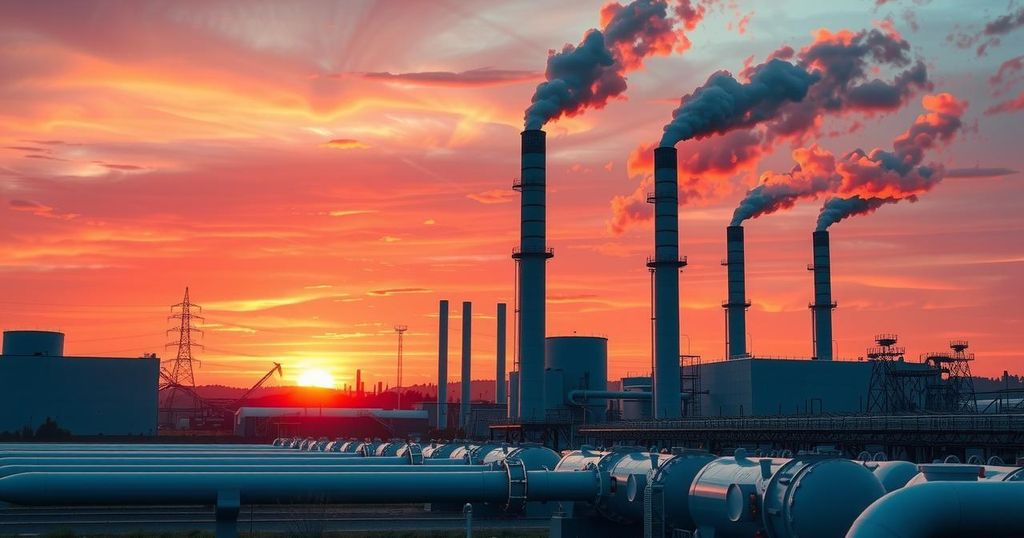Iraq’s exemption for importing Iranian gas and electricity was lifted on March 8, 2024, prompting urgent discussions with U.S. officials about the impact on Iraq’s electricity supply. Iraq is pursuing alternatives, including imports from Turkmenistan and LNG from Qatar. However, immediate solutions to replace Iranian energy imports remain limited, raising concerns for the upcoming summer electricity demands. In response, the Iraqi government is implementing measures to address these challenges.
On March 8, 2024, the United States lifted the exemption that allowed Iraq to import gas and electricity from Iran, leading to urgent discussions between Iraq and U.S. officials. The Chairman of the Economic Committee of the Iraqi Parliament, Atwan Al-Atwani, met with the U.S. Charge d’Affaires, Daniel Rubenstein, emphasizing the potential catastrophic consequences for Iraq if Iranian gas exports were hindered, particularly during the summer months when electricity demands peak.
Al-Atwani characterized the meeting as critical for maintaining open lines of communication between the two nations amidst growing tensions. He articulated concerns over energy and banking sanctions imposed by the U.S., and Rubenstein acknowledged these issues, promising to communicate them to Washington in search of lasting solutions that could benefit both Iraq and the U.S.
Under a recent agreement, Iran is set to export 50 million cubic meters of gas per day to Iraq, which is valued at approximately six billion dollars annually. Additionally, Iraq signed a five-year contract in July 2022 to purchase 400 megawatts of electricity from Iran. However, Iraq is actively pursuing alternatives to reduce its reliance on Iranian energy sources.
Iraq signed an agreement in October 2024 to import 20 million cubic meters of gas per day from Turkmenistan as a potential substitute for Iranian gas, and plans are underway to construct an LNG storage terminal at Faw port with anticipated supplies from Qatar. Moreover, the Qatar-Turkey gas pipeline, initially proposed in 2009 and re-evaluated due to changing geopolitical circumstances, could eventually enhance Iraq’s energy infrastructure.
Connecting Iraq to the Gulf Cooperation Council’s electricity grid is also on the table, as this project includes a transmission line from Kuwait to Basra, aimed at alleviating Iraq’s dependency on Iranian electricity. Furthermore, a $27 billion contract was signed with Total Energy to develop various energy projects in Iraq, intended to bolster oil production and integrate renewable energy solutions into the national grid.
Despite these forward-looking strategies, energy officials have indicated that Iraq currently lacks immediate alternative sources to sufficiently replace Iranian imports, which raises concerns about electricity supply, particularly during peak demand periods. One Ministry of Electricity official noted that urgent measures are being implemented to mitigate the effects of the U.S. decision on Iraq’s electricity supply.
Iraq’s reliance on Iranian gas and electricity faces unprecedented challenges following the lifting of U.S. sanctions. The Iraqi leadership is actively engaging with U.S. officials to navigate this complex situation. While initiatives to diversify energy sources through Turkmenistan and Qatar are promising, immediate solutions remain limited. As Iraq seeks to establish more resilient and independent energy frameworks, the urgency of the situation underscores the necessity for a strategic approach to energy security.
Original Source: www.tehrantimes.com




